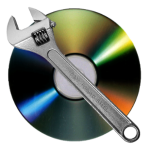 The Importance of Software Maintenance
The Importance of Software Maintenance
Software Maintenance is a misunderstood and often neglected form of maintenance that most any computer user can learn to do. I would get new customers all the time that had computers that were several years old, sometimes even 10+ years old that I could tell had been repaired several times before at other shops.
Based on my past experience, their computers probably failed in part, due to lack of any software maintenance. The reasons for letting their computer suffer ranged from self -proclaimed computer illiteracy, procrastination, and denial that computers even need any maintenance.
Updates, Scans, and Disk Cleanup – Oh My!
Most software maintenance involves updates, malware scans and disk cleanup which can be started with just a few clicks. Some software maintenance only involves quick daily tasks, while others should be performed weekly, monthly or quarterly, taking anywhere from a few minutes to an hour or so to complete. But this doesn’t mean you need to sit in front of your computer to babysit any scans.
I typically start some of my updates and scans just before lunch or dinner, and sometimes even before bed time. When I come back, the final steps usually take just a moment to complete and I’m done … assuming all went well.
Updates
I love to hate doing updates. It’s a never-ending task that doesn’t always end well if you just perform them blindly like most people do. There are some obscure prerequisites to perform before doing any updates that aren’t readily made known by the companies offering the updates.
These companies seem to assume that all is well with your computer and there is nothing that will impede the installation of their updates. Because most people have their updates set to automatically install by default, consumers have little or no control over the update process or its success. Occasionally, an update gone wild can cause Windows to become unstable or a particular program to malfunction. Aside from malware infections, these types of problems seem to happen out of the blue, sometimes leaving the consumer totally unaware of the cause.
I can show you how to significantly improve your chance of installing updates successfully, and if you still happen to experience an update gone wild, you’ll be better prepared to recover from the problem.
Malware Scans
If you connect your computer to the internet, or you share files and programs with other computers via CD, DVD, Flash Drives, Portable Hard Drives or a Network, you are at risk of getting infected with malware. Don’t be fooled into thinking your computer is immune to malware just because you have good Antivirus and Firewall software installed.
Also, don’t assume for a minute that just because you don’t do “this” or you don’t do “that” you would never get infected anyway, because you only use trusted websites.
Disk Cleanup
Disk Cleanup involves freeing up disk space on your PCs hard drive by removing unnecessary files, such as Temporary Internet files, Temporary Windows files, downloaded program files, the Recycle Bin, removal of unused applications and more. And about every 3 months, your should check your hard drive for fragmentation “after” a thorough Disk Cleanup, and defragment it as necessary. I will also show you how to safely clean the Windows Registry.
Regular software maintenance is probably the single best thing you can do to prevent your Windows installation from getting so congested and bloated that it just gets slower and slower over time. If you wait too long, sometimes the best thing you can do is to perform a fresh Windows installation, and then maintaining it regularly from then on.

Leave A Reply (No comments so far)
No comments yet